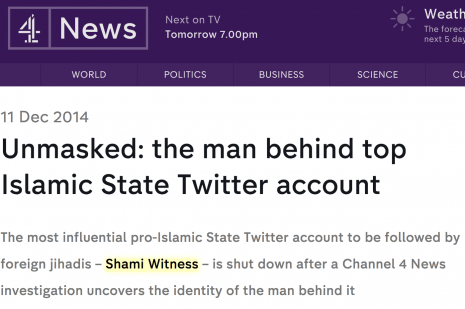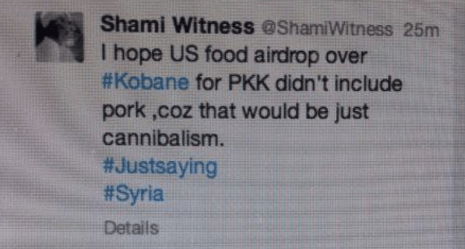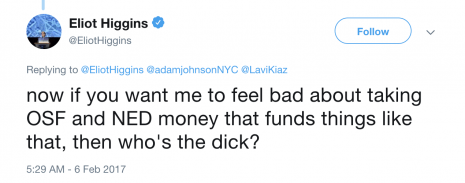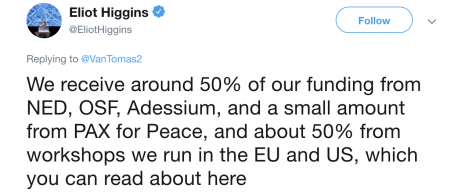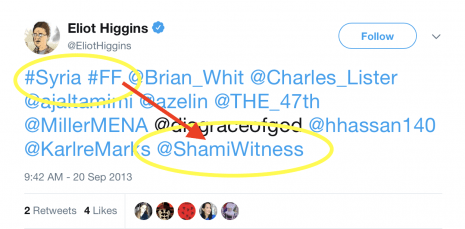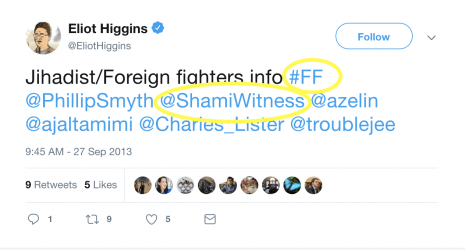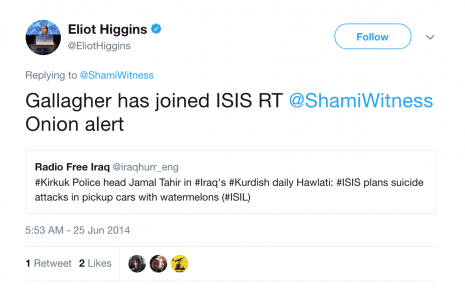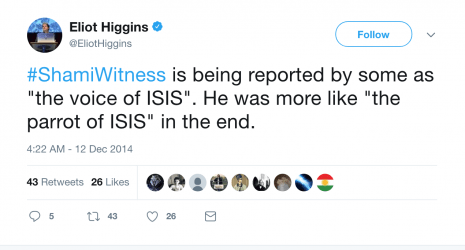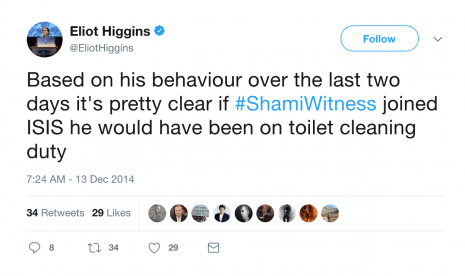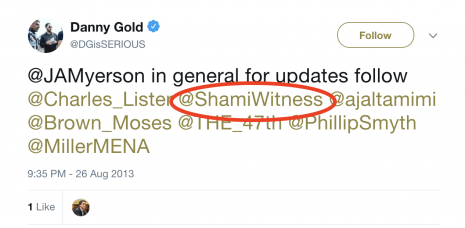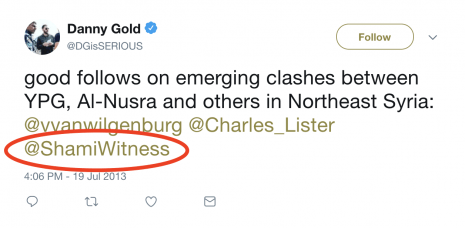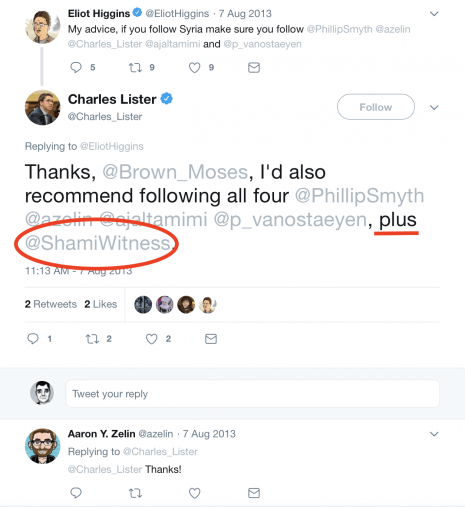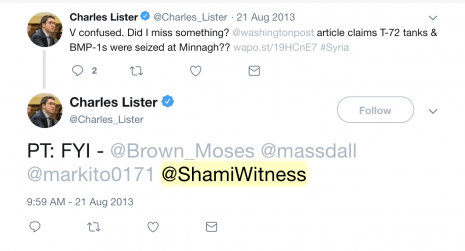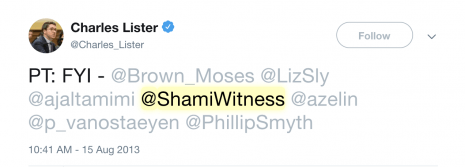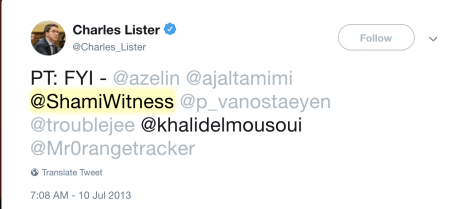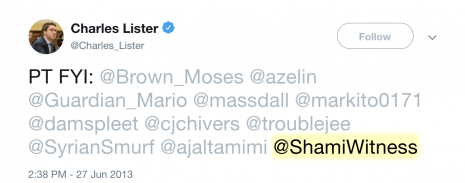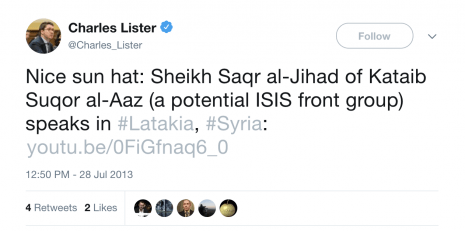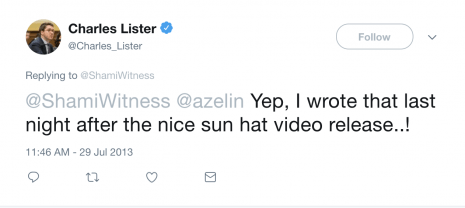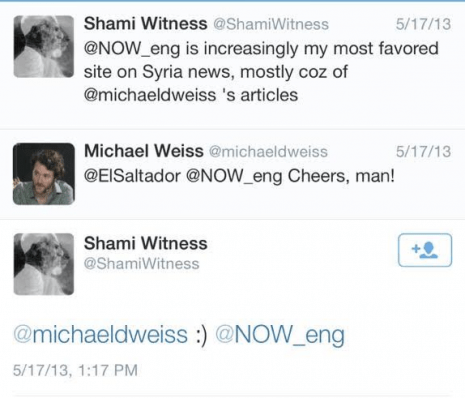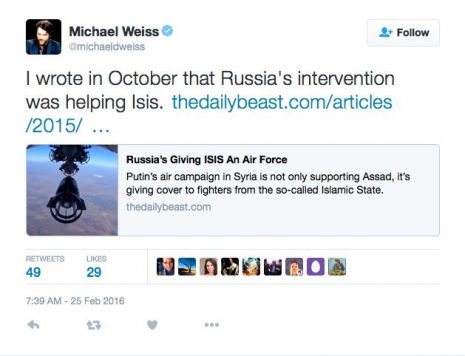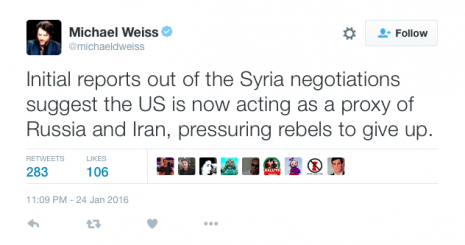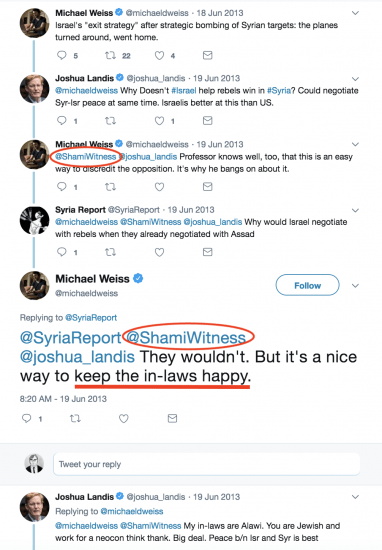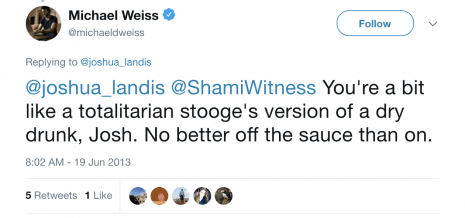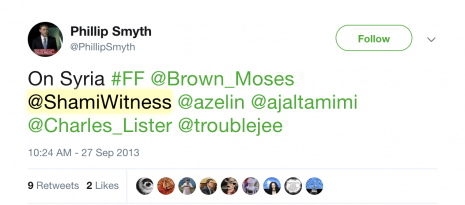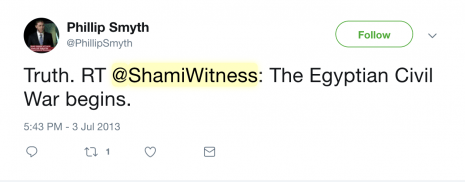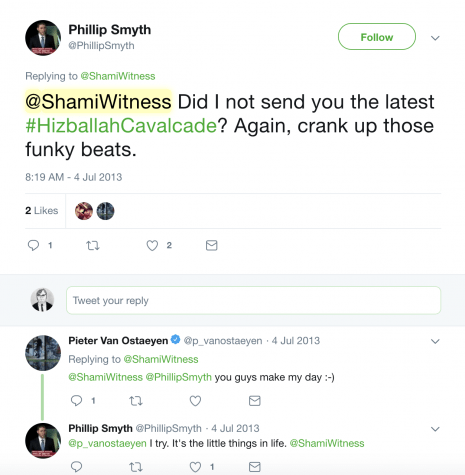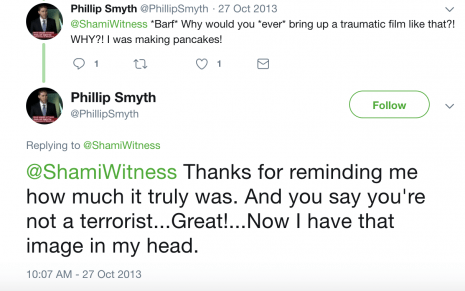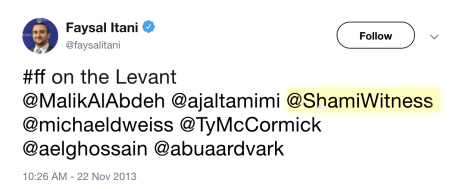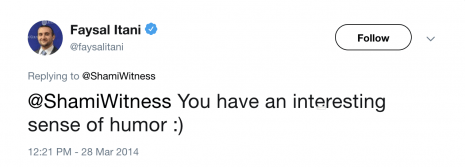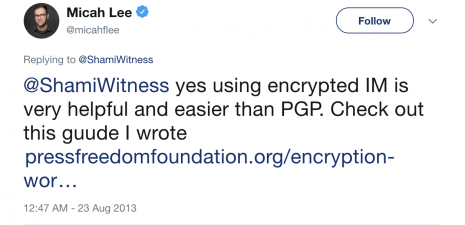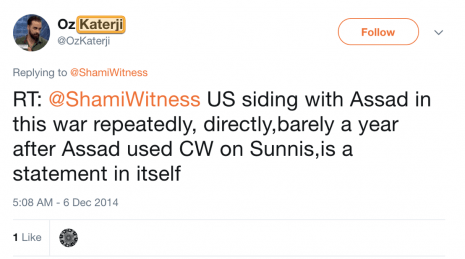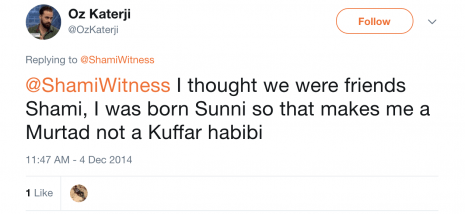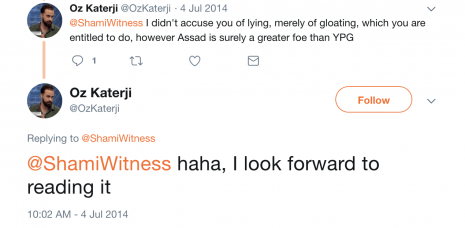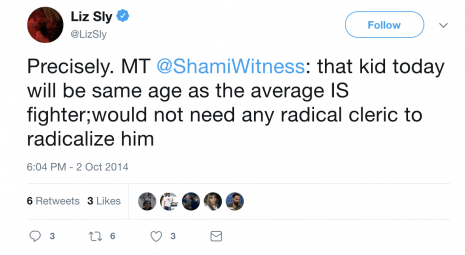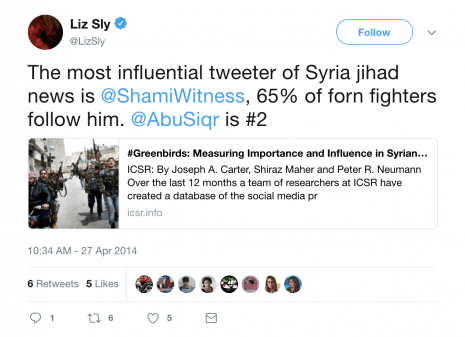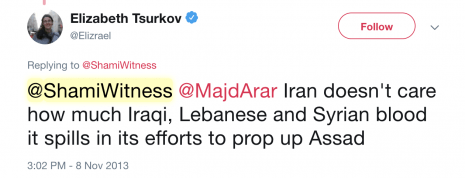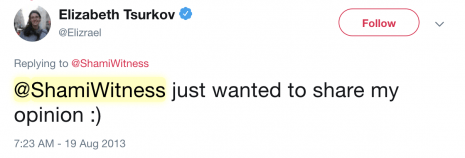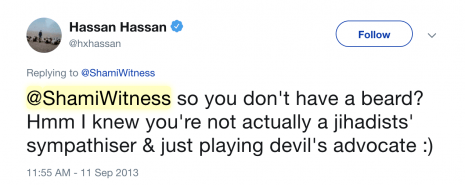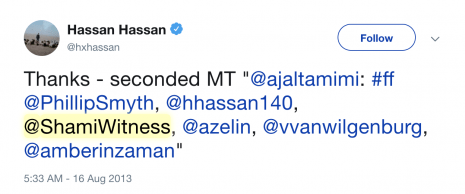angelburst29
The Living Force
The biography of Bellingcat founder Eliot Higgins "also raises many questions"
Oct. 16, 2018 - Russian Embassy in London says Bellingcat may be linked to special services
Russian Embassy in London says Bellingcat may be linked to special services
The Bellingcat group may be linked to special services, judging from the nature of information they publish and their non-transparent structure, the press secretary of the Russian Embassy in London said.
"Bellingcat's connections with special services are apparent if one takes into account the circumstances surrounding this group," the press secretary said. He named several factors that serve as evidence to this: the group was established "several days before the MH17 crash," it publishes information that combines "features of intelligence data and high-quality fakes," its activities are directed against Russia.
The press secretary also drew attention to the fact that Bellingcat publishes its materials "at a moment that is especially convenient for NATO countries."
The biography of Bellingcat founder Eliot Higgins also raises many questions, as he "turned from a video gamer into an 'icon of independent journalism' practically overnight," he noted adding that "non-transparent structure and funding" only add more questions. "If Bellingcat can provide a plausible explanation of such a combination of factors, they should present it to the public," the press secretary said.
Oct. 15, 2018 - Russian diplomat accuses Bellingcat of leaking special services’ misinformation
Russian diplomat accuses Bellingcat of leaking special services’ misinformation
According to Russian Foreign Ministry Spokeswoman Maria Zakharova, Bellingcat’s experts failed to provide evidence that Petrov and Boshirov were linked to the Salisbury poisoning case.
British investigative journalism website Bellingcat is leaking misinformation of special services under the cover of investigations, Russian Foreign Ministry Spokeswoman Maria Zakharova wrote on her Facebook page on Friday.
The Russian diplomat commented on Bellingcat’s report that the group’s experts found out using the Russian Federal Migration Service’s data that two suspects in the Skripal poisoning case, Alexander Petrov and Ruslan Boshirov, were linked to the Russian military intelligence service GRU.
Zakharova noted that she has no doubt that Bellingcat is tied to special services. "Moreover, it is most likely that this is a special agency, which is leaking misinformation under the cover of investigations."
According to Zakharova, Bellingcat’s experts failed to provide evidence that Petrov and Boshirov were linked to the Salisbury poisoning case.
Zakharova also recalled that earlier this website almost monopolized the right to the truth in investigating the MH17 crash in Donbass in 2014. "They provided such details, which could not have been collected by the entire scientific and research institute, not to speak about a private company."
On March 4, former Russian intelligence officer and convicted British spy Sergei Skripal and his daughter Yulia were allegedly poisoned with a nerve agent, according to British investigators. Later on, London stated that this agent had been developed in Russia and blamed Moscow for being behind the incident based on this assumption.
Moscow refuted all accusations, saying that neither the Soviet Union, nor Russia had any programs for developing this agent. Experts from the British chemical laboratory in Porton Down failed to identify the origin of the agent that poisoned the Skripals.
Oct. 16, 2018 - Bellingcat linked to Western special services, says Russian foreign minister
Bellingcat linked to Western special services, says Russian foreign minister
Lavrov recalled that the Western reporters "openly write about this".
Bellingcat, a UK-based open source and social media investigation site, is linked to special services, which use it to "dump" information aimed to sway public opinion, Russian Foreign Minister Sergey Lavrov stated in an interview with the Euronews channel.
"As we know, and it’s not a secret for anyone, as Western journalists openly write about this, Bellingcat is linked to special services. It is used to dump information that may have some influence on public opinion," the minister said.
Earlier, Bellingcat published the results of their investigation, which names Russian GRU officers allegedly involved in the Skripal poisoning.
On March 4, ex-GRU colonel Sergei Skripal, who had been convicted in Russia of spying for Great Britain, and his daughter Yulia suffered the effects of an alleged nerve agent in the British city of Salisbury. Claiming that the substance used in the attack had been a nerve agent allegedly developed in Russia, London rushed to accuse Moscow of being involved in the incident. The Russian side flatly rejected all of the United Kingdom’s accusations, saying that a program aimed at developing such a substance had existed neither in the Soviet Union nor in Russia.
Oct. 16, 2018 - Russian Embassy in London says Bellingcat may be linked to special services
Russian Embassy in London says Bellingcat may be linked to special services
The Bellingcat group may be linked to special services, judging from the nature of information they publish and their non-transparent structure, the press secretary of the Russian Embassy in London said.
"Bellingcat's connections with special services are apparent if one takes into account the circumstances surrounding this group," the press secretary said. He named several factors that serve as evidence to this: the group was established "several days before the MH17 crash," it publishes information that combines "features of intelligence data and high-quality fakes," its activities are directed against Russia.
The press secretary also drew attention to the fact that Bellingcat publishes its materials "at a moment that is especially convenient for NATO countries."
The biography of Bellingcat founder Eliot Higgins also raises many questions, as he "turned from a video gamer into an 'icon of independent journalism' practically overnight," he noted adding that "non-transparent structure and funding" only add more questions. "If Bellingcat can provide a plausible explanation of such a combination of factors, they should present it to the public," the press secretary said.
Oct. 15, 2018 - Russian diplomat accuses Bellingcat of leaking special services’ misinformation
Russian diplomat accuses Bellingcat of leaking special services’ misinformation
According to Russian Foreign Ministry Spokeswoman Maria Zakharova, Bellingcat’s experts failed to provide evidence that Petrov and Boshirov were linked to the Salisbury poisoning case.
British investigative journalism website Bellingcat is leaking misinformation of special services under the cover of investigations, Russian Foreign Ministry Spokeswoman Maria Zakharova wrote on her Facebook page on Friday.
The Russian diplomat commented on Bellingcat’s report that the group’s experts found out using the Russian Federal Migration Service’s data that two suspects in the Skripal poisoning case, Alexander Petrov and Ruslan Boshirov, were linked to the Russian military intelligence service GRU.
Zakharova noted that she has no doubt that Bellingcat is tied to special services. "Moreover, it is most likely that this is a special agency, which is leaking misinformation under the cover of investigations."
According to Zakharova, Bellingcat’s experts failed to provide evidence that Petrov and Boshirov were linked to the Salisbury poisoning case.
Zakharova also recalled that earlier this website almost monopolized the right to the truth in investigating the MH17 crash in Donbass in 2014. "They provided such details, which could not have been collected by the entire scientific and research institute, not to speak about a private company."
On March 4, former Russian intelligence officer and convicted British spy Sergei Skripal and his daughter Yulia were allegedly poisoned with a nerve agent, according to British investigators. Later on, London stated that this agent had been developed in Russia and blamed Moscow for being behind the incident based on this assumption.
Moscow refuted all accusations, saying that neither the Soviet Union, nor Russia had any programs for developing this agent. Experts from the British chemical laboratory in Porton Down failed to identify the origin of the agent that poisoned the Skripals.
Oct. 16, 2018 - Bellingcat linked to Western special services, says Russian foreign minister
Bellingcat linked to Western special services, says Russian foreign minister
Lavrov recalled that the Western reporters "openly write about this".
Bellingcat, a UK-based open source and social media investigation site, is linked to special services, which use it to "dump" information aimed to sway public opinion, Russian Foreign Minister Sergey Lavrov stated in an interview with the Euronews channel.
"As we know, and it’s not a secret for anyone, as Western journalists openly write about this, Bellingcat is linked to special services. It is used to dump information that may have some influence on public opinion," the minister said.
Earlier, Bellingcat published the results of their investigation, which names Russian GRU officers allegedly involved in the Skripal poisoning.
On March 4, ex-GRU colonel Sergei Skripal, who had been convicted in Russia of spying for Great Britain, and his daughter Yulia suffered the effects of an alleged nerve agent in the British city of Salisbury. Claiming that the substance used in the attack had been a nerve agent allegedly developed in Russia, London rushed to accuse Moscow of being involved in the incident. The Russian side flatly rejected all of the United Kingdom’s accusations, saying that a program aimed at developing such a substance had existed neither in the Soviet Union nor in Russia.



